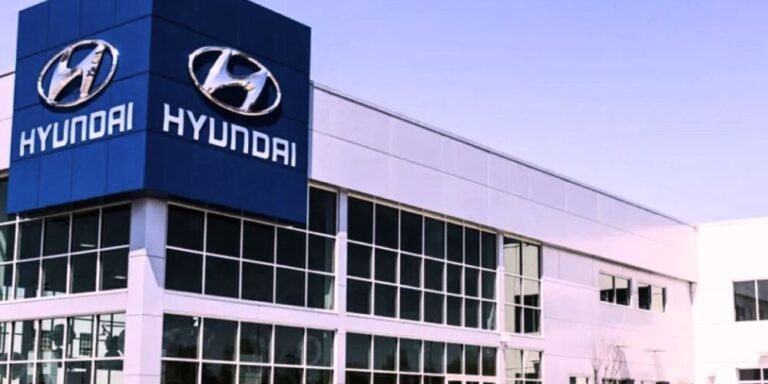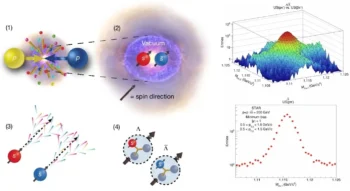Hyundai Motor Company is a prominent South Korean automotive manufacturer known for its innovative designs, advanced technology, and commitment to sustainability. Established in 1967, Hyundai has grown from a local carmaker to a global player in the automotive industry, producing a wide range of vehicles that cater to diverse consumer needs. This article outlines the key milestones in Hyundai’s evolution, from its founding to its current status as a leader in the future of mobility.
| Founded | 29 December 1967 |
| Founder | Chung Ju-yung |
| Headquarters | Seoul, South Korea |
| Type | Public Traded as-[KRX: 005380][LSE: HYUD] |
| Industry | Automotive |
| Subsidiaries | Hyundai Motor India, Hyundai Motors Indonesia, Hyundai Motor America, Hyundai of Canada, Hyundai Motor of South America, Hyundai do Brasil, Hyundai China, Beijing Hyundai, Hyundai Japan, Hyundai Motor Philippines, Hyundai Motor Europe |
| Website | hyundai.com |
Founding and Early Development (1967–1975)
Hyundai Motor Company was founded in December 1967 by Chung Ju-yung, a South Korean businessman who envisioned creating a domestic automobile industry. The company’s first model, the Hyundai Cortina, was introduced in 1968 in collaboration with Ford Motor Company. This marked Hyundai’s entry into the automotive market, providing a vehicle that combined British design with Korean manufacturing.
By 1975, Hyundai had launched its first wholly owned car, the Hyundai Pony. This car was notable for being the first South Korean car designed and manufactured entirely in Korea. The Pony was well-received domestically and established Hyundai as a serious contender in the automotive sector.
Expansion and Globalization (1976–1990)
Hyundai Motor expanded its production capabilities throughout the late 1970s and 1980s and began exporting vehicles to international markets. In 1986, the company established its first overseas assembly plant in Canada, reflecting its ambition to become a global automotive player. The success of the Pony and other models helped Hyundai build a reputation for affordability and reliability.
In 1990, Hyundai introduced the Sonata, a mid-size sedan that further solidified the company’s market position. The Sonata gained popularity for its quality and value, increasing exports and enhancing brand recognition.
Quality Improvements and the Introduction of the Kia Brand (1997–2000)
The Asian financial crisis in 1997 posed significant challenges for Hyundai, leading to financial difficulties and restructuring within the company. Hyundai initiated a comprehensive quality improvement program to enhance manufacturing processes and product quality.
During this period, Hyundai acquired a stake in Kia Motors, another South Korean automaker, which allowed the company to diversify its product lineup. The introduction of models like the Hyundai Elantra and the revitalization of the Kia brand in the early 2000s marked a turning point, as both brands began gaining recognition for their value, design, and reliability.
The “Hyundai Assurance” Program and Market Growth (2008–2010)
In 2008, during the global financial crisis, Hyundai launched the “Hyundai Assurance” program. This program aimed to restore consumer confidence by offering customers the option to return their vehicles if they lost their jobs. This innovative marketing strategy resonated with consumers, increasing sales and market share in the United States.
By 2010, Hyundai had become one of the fastest-growing automotive brands globally. The 2011 Sonata showcased Hyundai’s commitment to design and technology, featuring a sleek exterior and advanced safety features that further enhanced its reputation.
Sustainable Mobility and Technological Advancements (2011–2015)
Hyundai began focusing on sustainable mobility in the early 2010s, investing heavily in research and development for fuel-efficient and eco-friendly vehicles. The launch of the Hyundai Ioniq in 2016, which offered hybrid, plug-in hybrid, and electric variants, marked the company’s entry into the growing electric vehicle (EV) market.
During this period, Hyundai also introduced advanced safety technologies, such as the Hyundai SmartSense suite, which includes features like forward collision-avoidance assist, lane-keeping assist, and blind-spot monitoring. These innovations demonstrated Hyundai’s commitment to enhancing driver safety and comfort.
Launch of the Ioniq Brand and Expansion into Electrification (2016–2020)
In 2016, Hyundai Motor officially launched the Ioniq brand dedicated to electric and hybrid vehicles. The Ioniq Electric and Ioniq Hybrid were well-received, with the electric variant gaining attention for its efficiency and affordability. Hyundai also announced plans to invest heavily in electric vehicle technology and launch several new EV models in the coming years.
By 2020, Hyundai unveiled its ambitious plan to become a leader in electrification, announcing a roadmap to introduce 23 EV models by 2025. This commitment underscored Hyundai’s focus on sustainability and reducing its carbon footprint in response to global environmental concerns.
Partnership with Technology Companies and Autonomous Driving Initiatives (2021)
Hyundai expanded its efforts in autonomous driving technology in 2021 by partnering with companies like Aptiv and investing in innovative mobility solutions. This collaboration aimed to accelerate the development of autonomous vehicle technology and integrate it into Hyundai’s future models.
Additionally, Hyundai announced plans to develop a dedicated electric vehicle platform called E-GMP (Electric-Global Modular Platform). This platform would enable the production of various electric models with enhanced performance and efficiency, supporting the company’s electrification goals and meeting the growing demand for EVs.
The COVID-19 Pandemic and Recovery (2020–2022)
The COVID-19 pandemic significantly impacted the global automotive industry, causing supply chain disruptions and production delays. Hyundai responded by implementing strict health protocols in its manufacturing plants and adapting its operations to meet changing consumer demands.
Despite the challenges, Hyundai showed resilience by focusing on digital transformation and enhancing online sales channels. The company reported a strong recovery in sales as demand for personal vehicles surged during the pandemic, with consumers prioritizing safety and mobility.
Commitment to Sustainability and Future Mobility (2022–2023)
As of 2022, Hyundai Motor reaffirmed its commitment to sustainability by announcing plans to achieve carbon neutrality by 2045. The company aims to transition to a sustainable mobility provider by developing diverse eco-friendly vehicles, including hydrogen fuel cell and battery-electric vehicles.
Hyundai also focused on expanding its hydrogen infrastructure, launching projects to develop hydrogen refueling stations, and promoting using hydrogen fuel cells in transportation. This commitment highlights Hyundai’s ambition to be at the forefront of sustainable mobility solutions.
Future Vision: Innovating for a New Era (2023 and Beyond)
Looking ahead, Hyundai Motor Company is poised to play a significant role in shaping the future of mobility. The company aims to expand its electric vehicle lineup, enhance autonomous driving technology, and develop new mobility solutions that cater to consumers’ evolving needs.
Hyundai invests in smart mobility solutions, including urban air mobility and integrated transportation systems. The company seeks to leverage technology through partnerships and collaborations to create a seamless and sustainable transportation experience.
Hyundai Motor Company’s journey from a small domestic automaker to a global leader in the automotive industry is marked by innovation, resilience, and a commitment to sustainability. As the company continues to navigate the evolving automotive landscape, its focus on electric mobility and technological advancements positions it well for the future of transportation.





